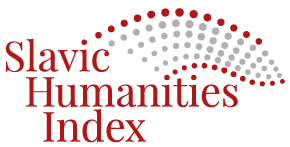Walking on Thorns
The Mostar Symposium of 1966
DOI:
https://doi.org/10.46352/23036974.2020.2.221Keywords:
Mostar Symposium of 1966, West Herzegovina, Croat issue in Bosnia and Herzegovina, politics of national equalityAbstract
The symposium held in Mostar in 1966, where the communists from Bosnia and Herzegovina publicly discussed the national issue of Croats, admitting also the wrong politics implemented after 1945 towards the Croats of West Herzegovina, aimed at the integration of West Herzegovina into the BiH framework, with the ultimate goal of integrating BiH for the purpose of achieving its equal status in the Yugoslav federation. After an extensive analysis of the situation in West Herzegovina that showed a mass emigration of Croats from the area to Western Europe, due to the negative political and economic situation, where they joined various immigrant groups mostly hostile towards Yugoslavia, the communist authorities had tried to end this trend and integrate the West Herzegovina area primarily around the regional centre (Mostar), and then to open the perspective of a wider integration of Bosnia and Herzegovina around the centre of the republic (Sarajevo), for the purpose of imposing Bosnia and Herzegovina as an equal member of the Yugoslav federation. Although the attitudes presented at the 1966 symposium opened certain perspectives to Croats of West Herzegovina, some high-ranking politicians also showed resistance. Critics appeared who thought that opening of West Herzegovina, liberalisation of the political attitude towards Croats and the removal of the ustaša legacy imposed to the area opened space for revitalisation of the ustaša movement. The Belgrade press was at the forefront of such claims, using several terrorist activities that had taken place in that period in Yugoslavia (the movie theatre and the railway station attacks in Belgrade, planting explosives at the Zagreb Mirogoj Cemetery, etc.) as an argument, since the accused were Croats from West Herzegovina. BiH political leadership claimed that the attacks were orchestrated by political and intelligence circles who opposed the Mostar symposium, and that certain groups outside Bosnia and Herzegovina used those events as an opportunity to interfere into the political events in Bosnia and Herzegovina in order to compromise the politics of creation of national equality, which was the main political orientation of BiH communists.Downloads
Download data is not yet available.
Downloads
Published
2020-12-10
How to Cite
Kamberović, H. (2020). Walking on Thorns: The Mostar Symposium of 1966. Journal of the Faculty of Philosophy in Sarajevo (History, History of Art, Archeology) / Radovi (Historija, Historija Umjetnosti, Arheologija), ISSN 2303-6974 on-Line, 7(2), 221–247. https://doi.org/10.46352/23036974.2020.2.221




